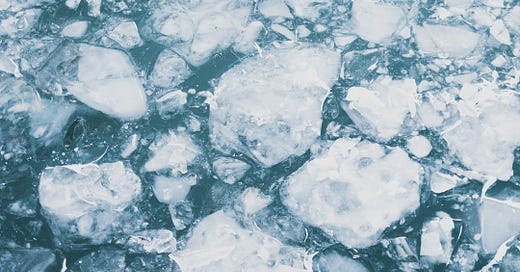The Age Defying Health Benefits Of Cold Therapy
Today’s Topic Highlights:
Cold exposure provides a myriad of physical and psychological health benefits. Cold has a naturally restorative effect on the body, similar to a good night’s sleep.
Cold exposure, particularly cold water, activates our parasympathetic nervous system (PSNS). This helps recalibrate the body after years of accumulated stress and inflammation.
It is important to note that the vast majority of water on Earth is “cold” by modern standards of comfort. All mammals, humans included, are evolutionarily wired to bathe in cold water.
Cold showers stimulate leukocytes, which help fight infection in the body.
Five practical ways to incorporate cold therapy are: (1) cold rinsing; (2) icing; (3) cold showers; (4) cryotherapy; and (5) outdoor cold exposure.
Cold exposure provides a myriad of physical and psychological health benefits. Cold has a naturally restorative effect on the body, similar to a good night’s sleep. Although the short term sensation of cold is unpleasant to most people, the long term benefits gained from regular exposure are well worth the cost of admission.
You may be wondering initially, why in the world would I want to be cold? I hate the cold! The reason is because cold exposure, particularly cold water, activates our parasympathetic nervous system (PSNS) and helps recalibrate the body. In short, activating the PSNS via cold therapy is like hitting the reset button after years of accumulated stress and inflammation.
The parasympathetic nervous system regulates our “rest-and-digest” functions. These include digestion, heart rate, respiration, sleep, libido, and mood to name just a few. The PSNS is the functional opposite of the sympathetic nervous system (SNS), which activates our "fight or flight" response. While the SNS prepares the body for immediate action, the PSNS returns the body to a state of calm and relaxation after stress. Maintaining an even balance between the PSNS and SNS is essential for overall health.
While the body is immersed in cold water or air, the blood immediately concentrates to the core. This is a survival mechanism we evolved to keep the vital organs functioning when temperatures drop. As soon as the body returns to room temperature, the blood recirculates to the arms and legs. This revitalizes the blood, transports fresh nutrients to tissues, and reinvigorates sluggish digestion.
It is important to note that the vast majority of water on Earth is “cold” by modern standards of comfort. All mammals, humans included, are evolutionarily wired to bathe in cold water. Although hot showers may feel good in the immediate, they dry out the hair and skin over time. Hot water on tap is a relatively recent advancement. All of our ancestors bathed in cool or cold water simply by default.





